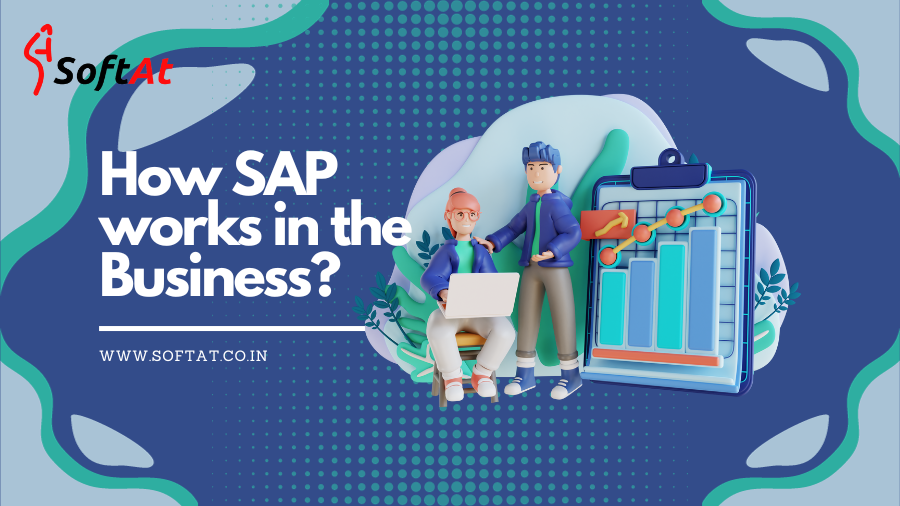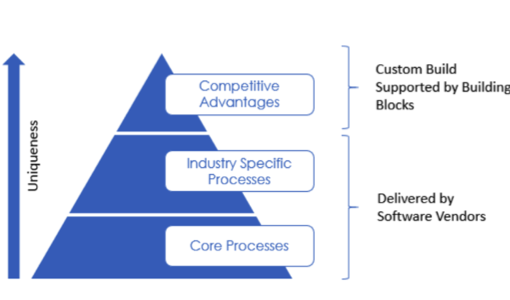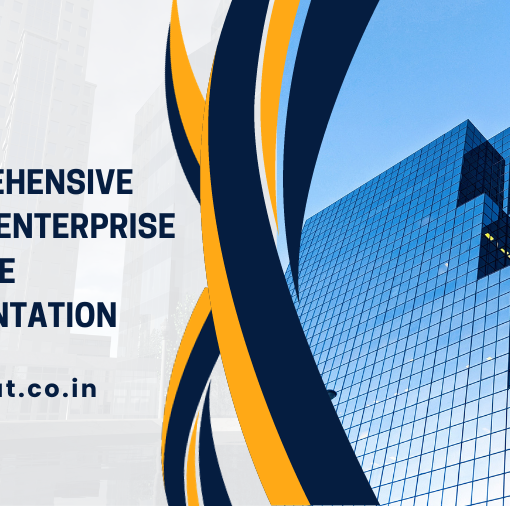In the intricate machinery of modern business, few names carry the weight and influence of SAP. But beyond the familiar blue logo lies a complex ecosystem of software solutions, each cog meticulously crafted to drive your organization’s success. So, how SAP works in the Business? Unraveling this mystery requires a deep dive into its core functionalities, unveiling the magic behind its transformative power.
The Foundation: A Suite of Solutions, How SAP works in the Business?
SAP isn’t a monolithic software; it’s a symphony of interconnected solutions, each addressing specific business needs. Think of it as a toolbox overflowing with specialized instruments, each one designed to tackle a different challenge:
- Enterprise Resource Planning (ERP): This core solution forms the backbone of your business operations, managing everything from finance and accounting to inventory and supply chain. Imagine it as the conductor, orchestrating the flow of information across your entire organization.
- Customer Relationship Management (CRM): Focuses on nurturing relationships with your customers, managing interactions, sales pipelines, and marketing campaigns. Think of it as the charming ambassador, building bridges and fostering loyalty.
- Human Capital Management (HCM): Takes care of your most valuable asset – your employees. It manages payroll, benefits, performance reviews, and talent development. Think of it as the nurturing gardener, cultivating a thriving workforce.
- Supply Chain Management (SCM): Ensures the smooth flow of goods and materials from suppliers to customers. It optimizes inventory, tracks shipments, and anticipates disruptions. Think of it as the meticulous navigator, charting the course for efficient operations.
- Business Intelligence (BI): Transforms raw data into actionable insights. It provides reports, dashboards, and analytics tools that empower you to make data-driven decisions. Think of it as the wise counselor, whispering wisdom gleaned from the vast ocean of information.
These are just a few examples, and the specific solutions you choose will depend on your industry, size, and unique business needs. But the beauty of SAP lies in its modularity. You can start with a core ERP system and gradually add other solutions as your needs evolve, building a customized suite that perfectly fits your business landscape.
The Architecture: How SAP works in the Business
Now, let’s delve into the internal workings of this software symphony. Imagine SAP as a vast network of interconnected modules, each dedicated to a specific function. These modules communicate with each other through a central nervous system – the SAP NetWeaver platform. Think of it as the data highway, where information flows seamlessly between different parts of your business.
This interconnected architecture offers several advantages:
- Real-time visibility: Data updates in one module instantly ripple through the entire system, giving you a holistic view of your business operations in real-time.
- Improved efficiency: Automated workflows and data integration streamline processes, eliminating manual tasks and saving valuable time.
- Enhanced collaboration: Different departments can access and share information easily, fostering better communication and teamwork.
- Scalability and flexibility: The modular design allows you to easily add or remove modules as your business grows and changes.
The Power of Data: How SAP works in the Business
At the heart of SAP’s magic lies its ability to harness the power of data. Every interaction, every transaction, every piece of information is captured and stored within the system. But raw data is just potential; it’s the tools and techniques that transform it into actionable insights.
Here’s where SAP’s BI solutions come into play. These tools analyze data from across your organization, identifying trends, patterns, and anomalies. They present this information in clear, concise dashboards and reports, empowering you to:
- Make data-driven decisions: Instead of relying on gut feeling, you can base your choices on real-time data and predictive analytics.
- Identify opportunities and risks: Spot trends early and adjust your strategies accordingly, staying ahead of the competition.
- Improve operational efficiency: Pinpoint inefficiencies and bottlenecks, optimizing processes and maximizing resources.
- Enhance customer relationships: Gain deeper insights into your customers’ needs and preferences, allowing you to personalize your offerings and build stronger relationships.
Beyond the Software: How SAP works in the Business
While SAP software is a powerful tool, it’s important to remember that it’s just one piece of the puzzle. Successful implementation requires a blend of technology and human expertise. This is where SAP consultants and partners come in. These seasoned professionals can:
- Help you choose the right SAP solutions for your business needs.
- Guide you through the implementation process, ensuring a smooth transition.
- Train your employees on how to use the software effectively.
- Provide ongoing support and maintenance to keep your SAP system running smoothly.
Investing in the right expertise can be the difference between success and failure, ensuring that you get the most out of your SAP investment.
The Symphony in Action: How SAP works in the Business
While SAP’s core functionalities offer a robust foundation for any business, its true magic lies in its ability to adapt and flourish across diverse industries. Let’s explore how SAP orchestrates success in three distinct settings:
1. Manufacturing Excellence: For manufacturers, SAP provides an integrated platform that streamlines every step of the production process. From managing raw materials and production schedules to quality control and traceability, SAP ensures efficient operations, optimized inventory levels, and reduced production costs. Imagine production lines humming in perfect harmony, each component arriving and being processed with precision, thanks to the invisible conductor of SAP.
2. Retail Symphony: In the ever-evolving world of retail, SAP helps businesses stay ahead of the curve. It provides tools for customer relationship management, personalized marketing campaigns, and real-time inventory tracking. With SAP, retailers can analyze customer trends, adapt product offerings, and offer seamless omnichannel experiences, captivating customers like a captivating concerto.
3. Healthcare Harmony: For healthcare providers, SAP offers solutions that improve patient care, optimize administrative processes, and manage finances effectively. Electronic medical records, appointment scheduling, and claims processing are just a few ways SAP helps healthcare organizations deliver better care while reducing costs. Imagine patients receiving personalized treatment plans, clinicians accessing real-time data, and administrators managing resources efficiently, all thanks to the steady rhythm of SAP in the background.
These are just a glimpse into the diverse applications of SAP across industries. Whether you’re in finance, logistics, or construction, there’s a specific set of solutions designed to address your unique needs and challenges.
The Journey of Transformation: From Implementation to Innovation
Implementing SAP isn’t a one-time event; it’s a journey of continuous improvement and innovation. Here are some key steps to maximize your SAP ROI:
- Start with a clear vision: Define your business goals and how SAP can help you achieve them. This will guide your implementation roadmap and ensure you’re focused on the right outcomes.
- Empower your team: Train your employees on how to use SAP effectively and encourage them to embrace the change. Remember, technology is just a tool – it’s your people who will drive its success.
- Seek continuous improvement: Regularly analyze your SAP usage and identify areas for improvement. Leverage data insights to refine processes, implement new functionalities, and stay ahead of the curve.
- Embrace the innovation ecosystem: SAP offers a thriving community of partners, developers, and experts. Tap into this resource to discover new solutions, best practices, and cutting-edge technologies that can further enhance your SAP experience.
From Orchestrator to Empowered Visionary:
SAP is more than just software; it’s a platform for transforming your business. It provides the tools, data, and insights you need to make informed decisions, optimize operations, and stay ahead of the competition. But remember, SAP is just the instrument – it’s your leadership, vision, and execution that will turn this powerful technology into a symphony of success.
So, are you ready to conduct your business transformation? Embrace the power of SAP, empower your people, and orchestrate a future of growth, efficiency, and innovation. With the right approach, your business can become a masterpiece, echoing with the harmonious strains of a well-conducted SAP symphony.
Conclusion
SAP isn’t just software; it’s a conductor, an architect, and a maestro of data. It orchestrates the flow of information, builds a foundation for efficiency, and transforms raw numbers into powerful insights. With SAP, your business becomes a symphony of interconnected processes, each note resonating with precision and purpose.
But remember, the magic lies not just in the technology, but in the human touch. Embrace SAP as a platform for your vision, empower your team to wield its tools, and continuously refine your digital melody. By doing so, you’ll witness a transformation – your business humming with optimized workflows, data-driven decisions, and a newfound agility to adapt and thrive in the ever-evolving marketplace.
So, step onto the stage, pick up the baton, and conduct your business towards a future of exceptional growth, empowered by the transformative symphony of SAP. The curtain is up, the audience awaits, and the world is yours to lead. Make it a masterpiece.
Frequently Asked Questions
1. What are the core functionalities of SAP?
SAP offers a broad spectrum of solutions, but the core functionalities that form the backbone of every SAP system include:
- Enterprise Resource Planning (ERP): Manages finance, accounting, inventory, supply chain, and other essential business operations.
- Customer Relationship Management (CRM): Fosters customer relationships, manages sales pipelines, and optimizes marketing campaigns.
- Human Capital Management (HCM): Handles payroll, benefits, performance reviews, and talent development.
- Supply Chain Management (SCM): Ensures efficient flow of goods and materials, optimizes inventory, and manages transportation.
- Business Intelligence (BI): Transforms data into actionable insights through reports, dashboards, and analytics tools.
2. How does SAP differ from other business software solutions?
SAP differentiates itself through its:
- Modular design: You can choose specific solutions tailored to your needs, building a customized suite as your business grows.
- Interconnected architecture: Data flows seamlessly across modules, providing a holistic view of your operations.
- Focus on data: Powerful BI tools transform data into insights that drive informed decision-making.
- Industry-specific solutions: Tailored to address the unique challenges and opportunities of different industries.
- Thriving ecosystem: Partners, developers, and experts offer ongoing support and access to cutting-edge technologies.
3. Is SAP difficult to implement?
Implementing SAP requires careful planning and expertise. However, with the right guidance from SAP consultants and partners, the process can be smooth and successful. Remember, ongoing training and continuous improvement are key to maximizing your ROI.
4. Is SAP affordable for small businesses?
SAP offers a range of solutions priced to fit businesses of all sizes. There are cloud-based options and smaller business-specific solutions at more accessible price points. Explore the various available options and consult with SAP representatives to find the best fit for your budget and needs.
5. What are the future prospects of SAP?
SAP is constantly evolving, embracing cutting-edge technologies like artificial intelligence, machine learning, and cloud computing. The focus on innovation and adapting to industry trends ensures that SAP remains a powerful platform for business transformation in the years to come.
You may be interested in:
SAP Fiori: End to End Implementation of My Inbox – Purchase Order Approval App
CRM Solutions Need a Brought together, Multi-contact Insight





